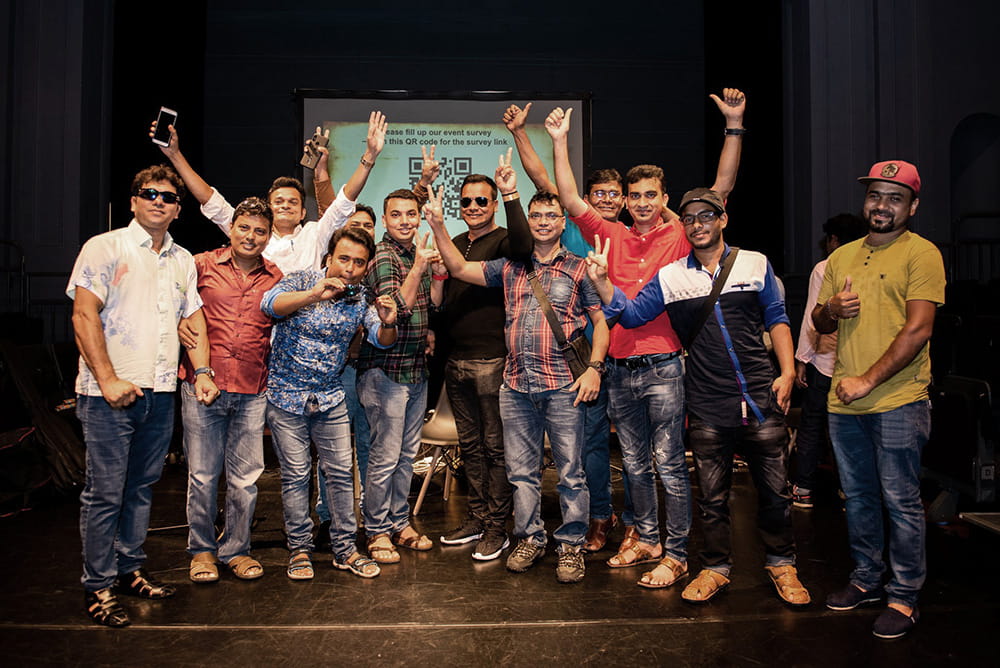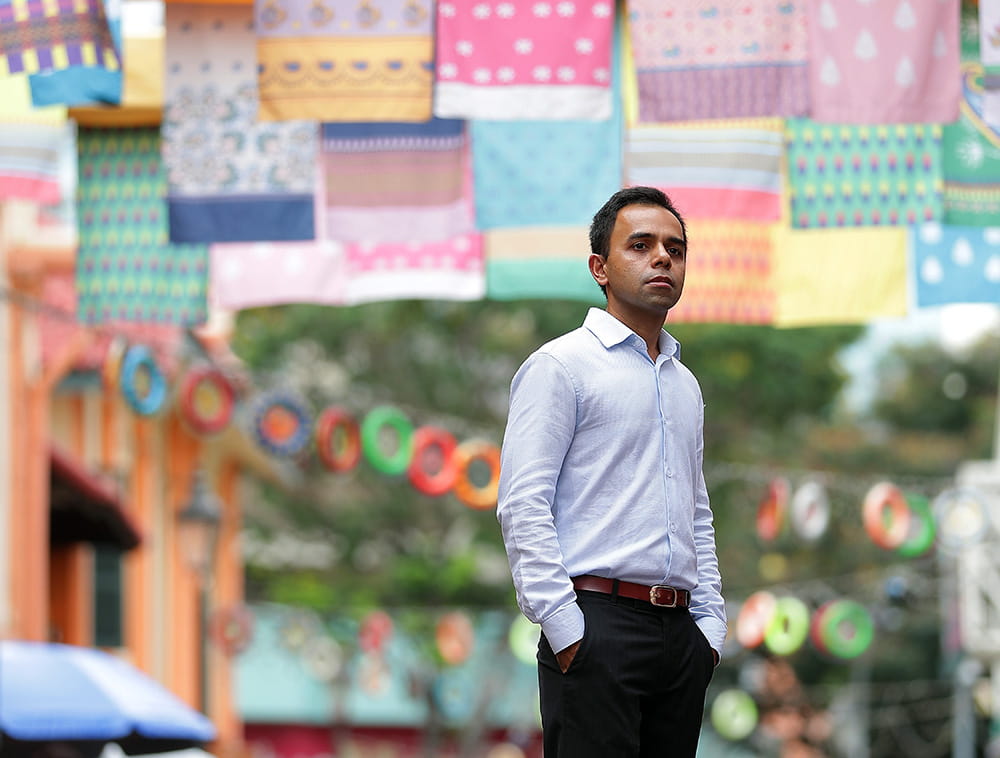Stories > Raising the Curtain
Raising the Curtain
The Global Migrant Festival seeks to use the arts to shed light on a lesser-known but important group in Singapore.
BY Low Shi Ping
igration is one of the key issues of this century and a defining zeitgeist of our times.
As globalisation becomes more widespread, so does its barriers. This dichotomous situation took centre stage at the inaugural Global Migrant Festival, held in Singapore last December with the aim of exploring the links between migration, labour and art.
The two-day cultural celebration, organised by Shivaji Das, brought together 200 participants from 25 regions, including international writers and artistes from low wage migrant backgrounds, or whose work revolves around migration and refugees.
By day, Das, 41, is the Asia-Pacific managing director for business consulting firm Frost & Sullivan. The former Indian national is passionate about migrant issues, having been one himself, before finally becoming a Singapore citizen in 2017. “Given my education and work profile, I had a lot more choices and freedom to move around places. But many don’t have that flexibility,” says Das, who has previously worked in the US. “Despite migration defining the world today, there is a lot of unfairness, such as the exploitation of low-wage workers. I felt I could use this opportunity to give them a voice.”
Indeed, the festival is the culmination of the annual Migrant Worker Poetry Competition, which Das has been organising for the past five years. Held at cultural locations throughout the city – including the National Gallery Singapore, The Arts House and Singapore Book Council – the festival line-up was a mix of poetry, theatre, music and dialogue helmed by migrant workers themselves.
Besides the final of the Migrant Worker Poetry Competition, the public could also attend discussions featuring celebrated Chinese factory worker turned poet Zheng Xiaoqiong and Malaysian photojournalist Samsul Said, who was honoured at this year’s Sony World Photography Awards for his work documenting Rohingya refugee camps.
Then there was The New Land, a theatre production by performing troupe The Birds, based on the personal experiences of its Indonesian, Filipino, and Bangladeshi migrant workers seeking opportunities away from home.
Shivaji Das, a corporate executive and naturalised Singaporean, started organising the Migrant Worker Poetry Competition five years ago, to great response.
CREATIVE ASPIRATIONS
A former domestic migrant in China, Zheng left her home in rural Sichuan 18 years ago to work in a factory in Dongguan, Guangdong.
There, she put in 12-hour shifts a day, and wrote after hours from her bunk bed. Sharing insights from her poetry collections that have been translated into seven languages around the world, Zheng discussed how her experiences have not only informed her writing but also shaped her identity.
“Writing in the cracks of my life, poetry became the lush greenery of my lonely days in a foreign land,” she was quoted in an earlier interview with a local broadsheet.
Singaporean artist and poet Elancharan Gunasekaran, who was one of the Migrant Worker Poetry Competition judges, has carefully observed the workers’ desire to find an outlet for their latent creativity.
“During their time off, they visit the museums, and dabble in photography, writing, filmmaking and visual art, often expressing our perception of them in their work,” he says, adding that we can learn a lot from them.
Due to interest generated over annual editions of the competition – which has grown from 28 entries in 2014 to 120 in 2018, with contestants from Bangladesh, China, India, Myanmar, Indonesia and the Philippines – the festival attracted ever more talented individuals.
DESPITE THE ODDS
As word spread through channels such as non-profit organisations and United Nations High Commissioner for Refugees, more artistes got involved.
Das shares that each component was streamed on Facebook Live and reached more than 15,000 people globally. However, the event was not without its challenges.

The migrant bluecollar workers feel empowered about being able to express their thoughts on a public platform.
“We are only an informal group of volunteers coming together to organise this festival,” he says.
Seeking permission from the local authorities for refugees from other countries to attend the festival in Singapore was the biggest challenge. Many of the refugees, who could not travel due to lack of official documents, participated via Skype.
Garnering live audience was another challenge. While the poetry contest drew over 200 people each time, the discussions were less well-attended.
Yet, Das remains undeterred. “Our objective was to make the festival happen in the first place. It created awareness of the issues migrants face through extensive online reach and worldwide media engagement,” he says.
“Despite Migration Defining The World Today, There Is A Lot Of Unfairness Such As Exploitation Of Low-wage Workers. I Felt I Could Use This Opportunity To Give Them A Voice.”
Das also deduced interesting insights from the discussions, such as their insistence on keeping their identity as migrant poets than just poets. “Their objective is to harness art to convey and discuss migration, rather than pursue art as a hobby.”
Another perspective he gleaned from the recurring discussions was that across various countries the general attitude towards migrants and refugees remains unfavourable, leaving them feeling disenfranchised and alienated.
Nonetheless, the participants stress that being able to voice their opinions on a public platform has given them a greater sense of empowerment. One was Indonesian Wiwik Tri Winarsih, 35, who has been working as a foreign domestic worker in Singapore since 2004.
Having written short stories since young, Wiwik engages in theatre production on her rest days. Besides exploring the common theme of migration with a cast and crew from different countries, overseeing The New Land production made her understand their cultures better.
“I hope I have the opportunity to work with them again,” she says.
Das, who has been getting requests from the Middle East and Japan to replicate it there, hopes the festival will run biannually.
With over 70 per cent of the respondents of a post-event survey saying that their understanding of the migrants’ role and challenges they face in society, has improved, it’s evident that such programmes give a strong voice and face to the low wage workers.

